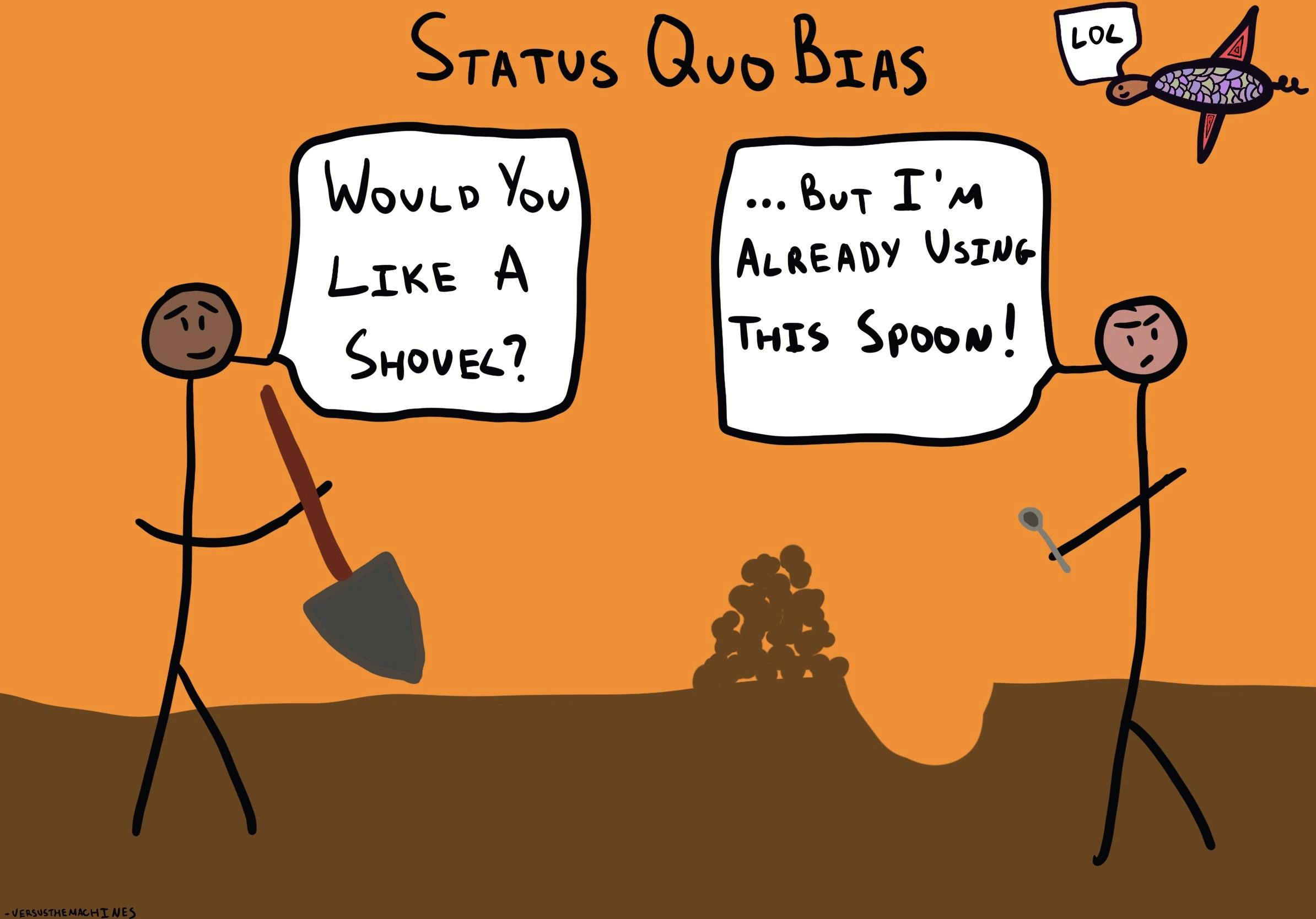Why do we tend to leave things as they are?
Status Quo Bias
, explained.What is the Status Quo Bias?
The status quo bias describes our preference for the current state of affairs, resulting in resistance to change.

Where this bias occurs
Sam is a college student, gearing up to start a new semester. Her school automatically enrolls students in medical and dental insurance. Of course, there is the option of opting out, which would decrease the total sum of her school fees. Sam isn’t even sure whether or not she needs health insurance, since she might be already covered by one of her parent’s plans. However, she doesn’t give it much thought and pays her tuition anyway.
This is an example of status quo bias because Sam decides to leave things as they are rather than investigate further and opt out of health insurance. If things were reversed, and the school did not automatically include insurance in the total fees, far fewer students would probably choose to be covered. However, the school uses the status quo bias to their advantage, knowing that students are more inclined to stick to the original plan instead of going out of their way to pay less.
Debias Your Organization
Most of us work & live in environments that aren’t optimized for solid decision-making. We work with organizations of all kinds to identify sources of cognitive bias & develop tailored solutions.
















